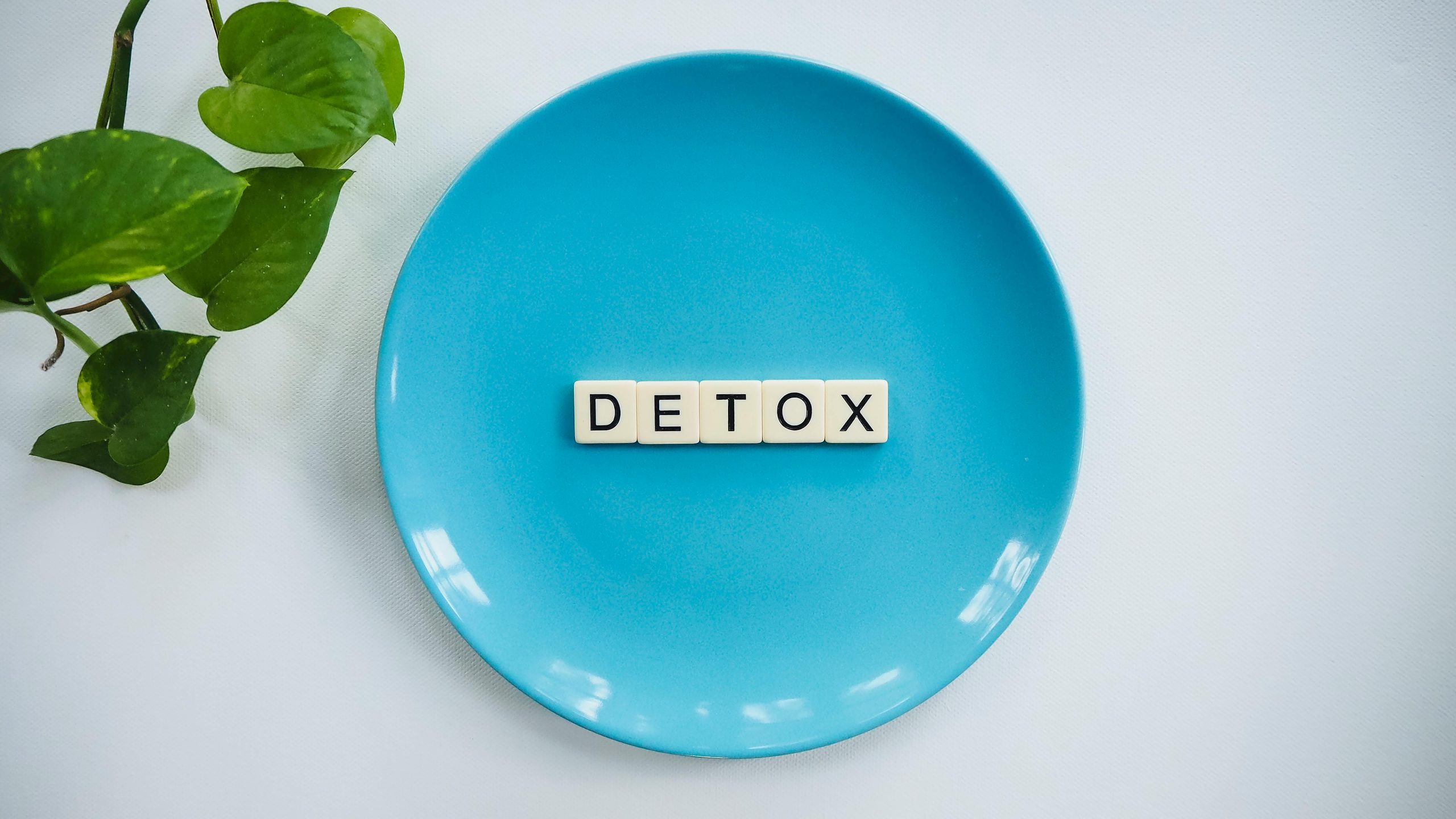Fasting is the oldest remedy that, even in our modern times, should be the most widely known and used form of treatment by us. Mentioned many times in the Old Testament, Jesus, Moses, and Elijah fasted for 40 days. Today, as a religious ritual, it continues to be performed by Jews, Muslims, Christians, and Hindus. Plato and Hippocrates also used fasting as a form of cure for syphilis in ancient times.
What is Fasting?
It is simply a rest for the body and a way of attempting to detox. The body uses fasting as a simple tool to eliminate toxins periodically introduced by poor eating habits and a diet full of toxins. Our body works in such a synchronized and wonderful way that its mysteries are still being discovered by Science and Medicine. It constantly and automatically seeks healing through the elimination of toxins and chemical and electrolyte balance. It has a limited capacity to store and eliminate excess while the body works exhaustively through digestion and stress related to the ingestion of excess food, medications, nicotine, metabolites from a bad combination of foods such as sugar, sweeteners, caffeine, toxins such as artificial colors, flavorings, preservatives, pesticides, insecticides, among other indigestible chemical substances that overload the liver, kidneys, gastrointestinal tract, and lungs.

As they accumulate over many years due to poor diet, pollution, etc., they interfere with the body's entire self-regeneration process and its constant attempt to eliminate these toxins, overloading the entire organism and harming it in this process. In this way, the body becomes inflammatory and sick, acting as a "trigger" for diseases. The common cold, for example, is a condition in which the body is congested, the nervous system works excessively and requires a lot of energy to reduce this inflammatory state, reducing vital energy and clarity of mind.
Fasting is a simple remedy, as it is a simple way for the body to eliminate all toxins without overloading the organism. Abstinence from food provides rest for the body from all the excess work it has done over many years. Although some people interpret fasting as dangerous, it has more to do with misinformation and lack of knowledge about this practice, which leads to doing it the wrong way.

Partial or Modified Fasting
Fasting is a practice of total abstinence from food. If a person says they are fasting from fruit or juice, they are not fasting; they are following another form of diet that is restricted. Fasting is simply abstinence from food, with only water intake, or at most a lemon added to the water intake restricted to water. In any case, a diet restricted to juices or fruits, or restricted to one food, is already a start to initiating a form of detoxification, and can start in this way until reaching the fast itself.
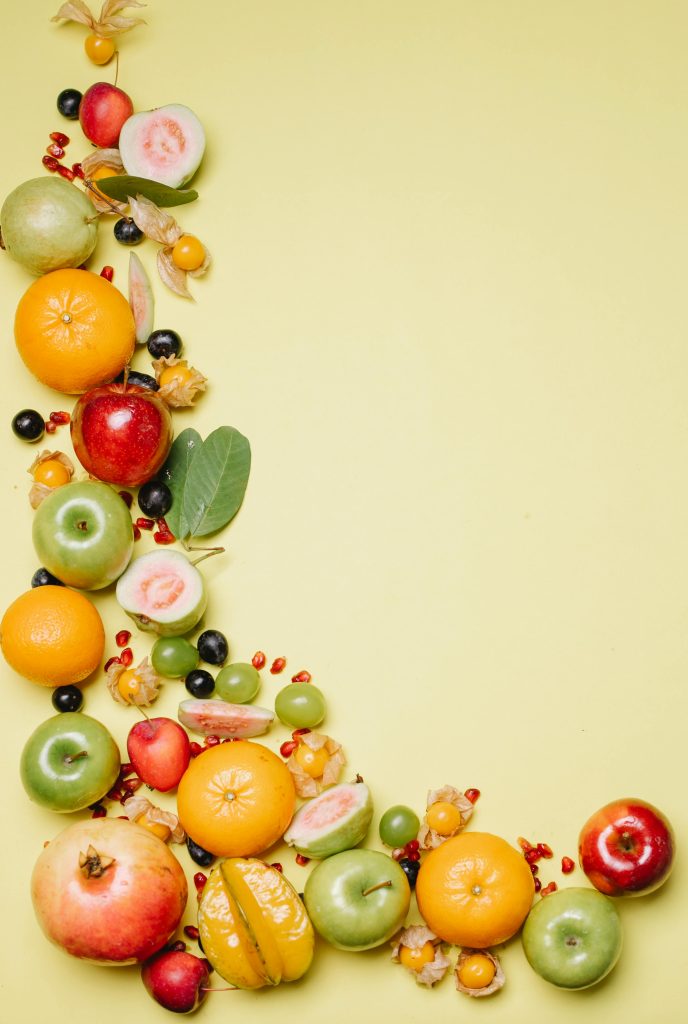
Anorexia and Bulimia
These are eating disorders of psychological origin and neurotransmitter disorders in which the person causes a lot of stress to the body and inhibits healing and decreases vitality. Neither of these forms or what triggers these diseases should be the motivation for fasting.
Reasons to Fast
- Social/Political Actions
- Religious, personal reasons
- Reeducation Program
- Eliminate addictions
- Dental health
- Healing the body
- Detoxification
- Weight loss
Conditions that are treated through Fasting:
– Allergies
– Asthma
– Bronchitis
- Fever
– Obesity
- Insomnia
- Migraine
– Chronic inflammation
– Arteriosclerosis
– Essential arterial hypertension
– Skin diseases: Acne, Psoriasis, Ulcer
– GIT disorders: Gallstone disease, intestinal diseases (diarrhea, constipation), Liver disease.
Over time, toxins build up in the body as a result of multiple factors, such as air pollution, chemicals in food, and even the water we consume. Periodically, our bodies need to remove these toxins that have accumulated in our tissues. Toxins that circulate in our bloodstream occasionally cause the blood to slow down or circulate more slowly. When this slowdown occurs, we may suffer from headaches, diarrhea, and depression. Fasting is an effective and safe method of helping the body detoxify and speed up blood flow in our body, breaking the slowness and reducing symptoms of low blood flow in our tissues. In fact, fasting is recommended for all illnesses because it gives our bodies the rest they need to recover. Acute illnesses, intestinal disorders, allergies, and respiratory diseases are the most responsive to this effective method. By giving the body the rest it needs from overworking its digestion, fasting allows all the systems in the body to remove toxins and facilitate the necessary healing.
However, fasting is not only necessary for illnesses, but by fasting regularly, you give your organs a rest and slow down the aging process, increasing your life span.

During fasting, some events occur:
– The natural process of excretion of toxins continues, while the intake of toxins decreases. This results in lesser amounts of toxins inside the body.
– The excessive work of the Immune System is reduced, and the Gastrointestinal Tract is spared from inflammations responsible for allergic reactions to food.
– Because of a smaller amount of fat ingested, the blood circulates more easily and with greater flow, better oxygenating the tissues and the white cells (leukocytes) can move more easily.
– Some toxins stored in fat cells, such as medications and pesticides, are removed and excreted.
– Increases physical response, clarity of mind and improves sensitivity to healthy diet.
Therefore, fasting promotes an increased response to recovery from illness, detoxifies the liver, kidneys, and intestines. It purifies the blood, aids weight loss, and water helps in the excretion of toxins. It improves visual acuity and increases taste sensitivity, and clears bad breath.
The recommendation is that you fast for 3 days once a month and follow a 10-day fast twice a year. Fasting in this way is for healthy people. Those who have any chronic pathology or medical condition should first consult a doctor before starting a fast like this. Children cannot fast for a long time and go without nutrition, so they should not fast.

Fasting has its own time-dependent objectives, perfecting different situations. A 3-day fast helps the body remove excess toxins, i.e. detoxification. A 5-day fast starts a healing process and rebuilds the immune system. A 10-day fast can prevent many problems before they even start and helps fight diseases, including degenerative diseases that have become very common in our days full of pollution and an environment full of chemical agents.
Certain precautions should be taken during fasting. First, do not drink only water, as a water-only fast can quickly flush out toxins and can cause severe headaches. Instead, you can follow a liquid fast with fresh fruit juice, which can also help detoxify and promote healing by supplying the body with vitamins, minerals, and enzymes. This fast leads to a healthy diet after the fast, which will help to rehabilitate the body and change your eating habits to a healthy diet. Your palate will become more accustomed to raw foods and the vitality that this diet provides. Second, when fasting for more than 3 days, do so under the supervision of a qualified health professional to monitor the electrolytes and minerals that are vital to the body. If you have diabetes, hypoglycemia, or another chronic disease, even a shorter fast should be supervised and guided by a doctor. Women who are pregnant or breastfeeding should not fast.
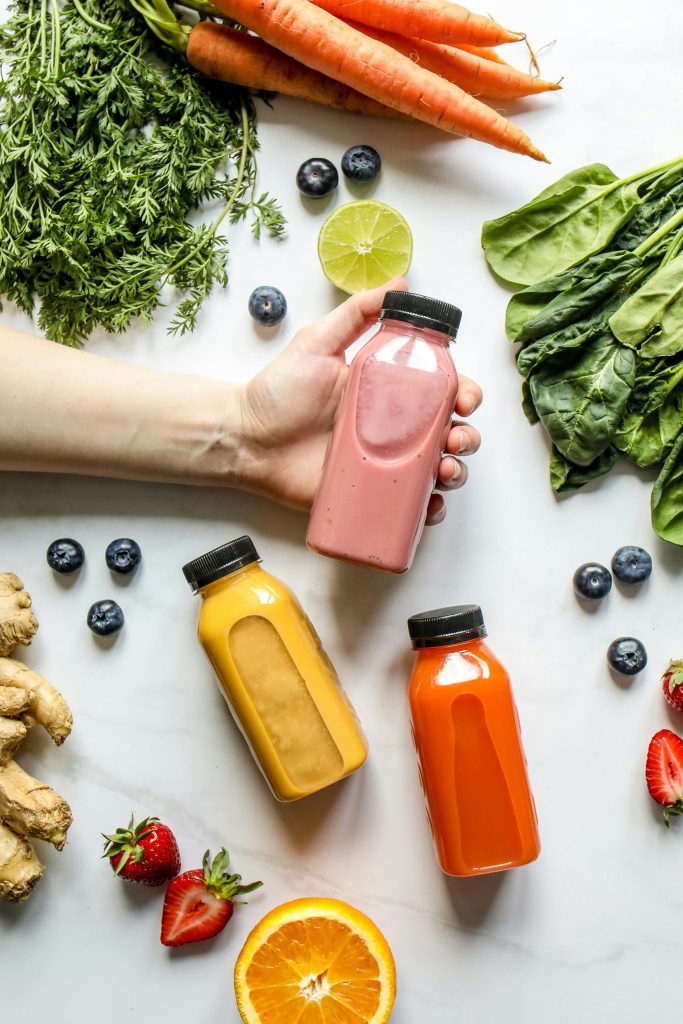
Final guidance: For many years you may have damaged your body, so it takes a long time to recover, rebuild your health and rehabilitate to a level where your body functions properly, but believe me it can happen. So, any time you are not feeling well, fast and feel better. A regular, everyday diet contains salt (an important electrolyte). However, if you feel dizzy, lightheaded, include some soup that contains this electrolyte in your fast. Dried fruits like apricots contain a high content of sodium and potassium.
Procedure
To prepare for a fast, you should eat a raw food diet (only raw fruits and vegetables) for 2 days. This will prevent the fast from being a shock to your body. During the fast, drink at least 8-10 glasses of mineral water (basic pH: > 7.45) per day. If possible, also add fresh fruit juice and 2 glasses of herbal tea per day. Fruit juice should be diluted as follows: 3 parts fruit and 1/3 water. Do not drink orange juice or tomato juice, and avoid juices with sweeteners and other additives.
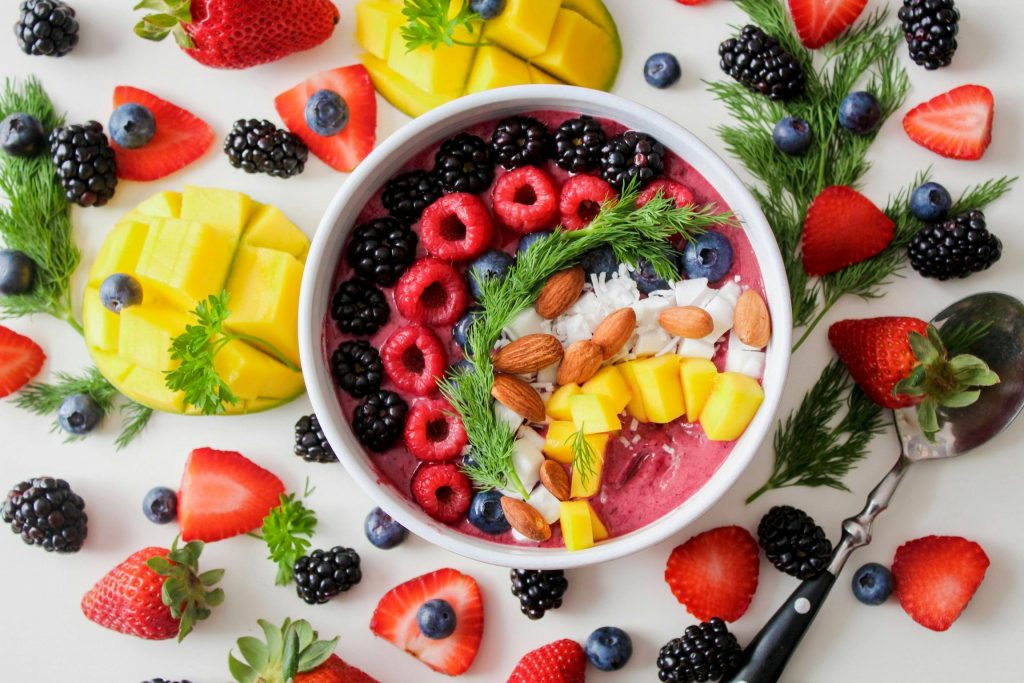
The best fruit juice to use during fasting is lemon juice made from 1 lemon diluted in 1 glass of warm water. Fresh apple, beet, carrot, cabbage, celery and grape juice are also good as “green juices”, which are made from leafy greens. These green juices are excellent detoxifiers. Raw cabbage juice is particularly good for ulcers, cancer, and bowel-related problems. It is recommended that you drink the juice as soon as it is prepared, as it loses its vitamins after a few minutes of preparation. As a general rule, you should not combine fruits with vegetables in juices. Apple is the only fruit that can be combined with vegetables in juice.
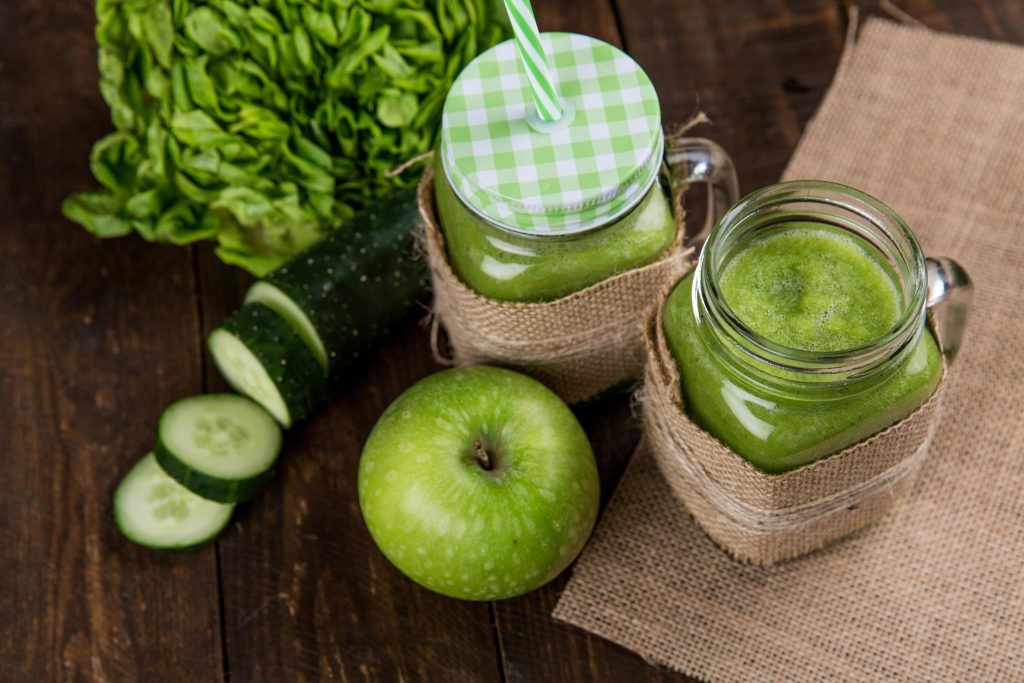
Follow the recommendation: juice-water-tea on an empty stomach after two days of a raw food diet (only fresh fruits and raw vegetables) before the fast. The desired effects of fasting can be ruined if you start a diet with cooked foods immediately after fasting. This is due to the shrinking of the stomach and the reduction of digestive enzymes secreted during fasting. Therefore, you should follow the first meals after fasting, small amounts of food and more frequent meals during the first day.
Herbs
- You can use alfalfa, chamomile, dandelion, milk thistle, red clover, and rosehip tea to purify your blood and detoxify your liver. Caution: Do not use chamomile if you are allergic to shrubs or pollen. Do not use during pregnancy or breastfeeding. It may interact with warfarin or cyclosporine, so patients taking these medications should avoid these herbs.
- Mixture: 2 parts echinacea and Pau D'arco tea mixed with 1 part cranberry juice (unsweetened). Use 4 times a day. It will help restore the immune system, improve bladder function and detoxify the intestine (colon) of bad bacteria. Precautions: Do not take Echinacea for a long time, more than 3 months. It should not be used by people who are allergic to shrubs or pollen.
- Peppermint tea to calm and strengthen nerve function, for indigestion, nausea and flatulence.
- Slippery elm tea for intestinal inflammation.
- Take 2 garlic capsules (vegetable) twice a day. If you prefer it as a liquid (extract) or squeezed, 1 teaspoon in a glass of water. Garlic capsules or squeezed raw garlic should be taken before fasting, during and after fasting and adapted to the diet in general, as it promotes health as a whole, helps to cure diseases, increases the recovery process and is bactericidal and in some types of intestinal parasites.

Recommendations:
– When you fast, you may not be getting enough sodium. If you feel dizzy or lightheaded, eat some salty soup or add salt to your food.
– If you feel the need to eat something during your fast, eat a piece of watermelon. Always eat watermelon on its own, without any additional food, just the watermelon. You can also eat fresh, non-industrial apple paste, made in a blender or food processor. Do not peel the apple and do not cook it.
– Take a fiber supplement daily before and after fasting, but NOT DURING the fast. It promotes intestinal cleansing before and after fasting, so make sure it is part of your daily diet. Oat bran is a great source of fiber. Try to avoid supplements containing wheat bran, as they can be irritating to the intestinal wall. You can use the fiber source in a mixture of half aloe vera juice and half natural cranberry juice. This mixture promotes an increased detoxification effect. Psyllium seed husk, flaxseed and chia seeds are other types of foods rich in fiber. Make sure to take them quickly, as they have great water absorption power. Take with a large glass of water.

– Never chew gum while fasting. The digestion process begins when we chew and the body secretes enzymes into the gastrointestinal tract. If no food enters the stomach, a cascade of gastrointestinal problems begins.
– If desired, take Spirulina during your fast. Spirulina contains a high amount of protein and contains a wide variety of vitamins and minerals. If you are using capsules (vegetables), take it 3 times a day. If it is powder, you can add 1 teaspoon to unsweetened fresh fruit juice.
– If you have hypoglycemia, consult a doctor before starting any type of fasting.
– If you are over 65 years of age, or if you require daily vitamins or supplements for any other reason, continue taking your vitamins or mineral supplements during the fast. Older people require certain vitamins and minerals daily. When drinking fresh juices, reduce the dosage of these supplements and seek supervision from a qualified health care professional.
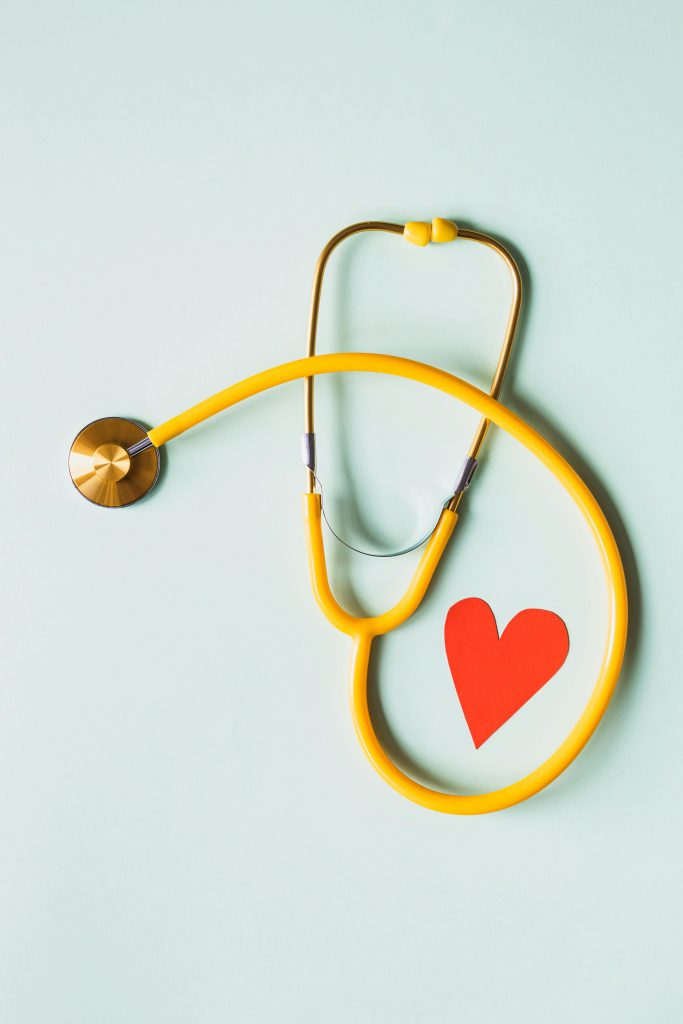
– During fasting, when toxins are being removed from the body, you may experience fatigue, increased odor, dry skin, rashes, headaches, dizziness, irritability, anxiety, confusion, nausea, dry cough, diarrhea, dark urine, dark stools with increased odor, body aches, insomnia, increased nasal secretions, and visual and/or hearing problems. These symptoms are not serious and should pass quickly, as they are the effects of the release of toxins and the excretion of these substances. To alleviate these symptoms, drink a glass of water with 1 lemon and you can use hydrotherapy treatments. It can also be a side effect of low sodium intake, so make sure to drink plenty of fluids and eat fruits rich in electrolytes.
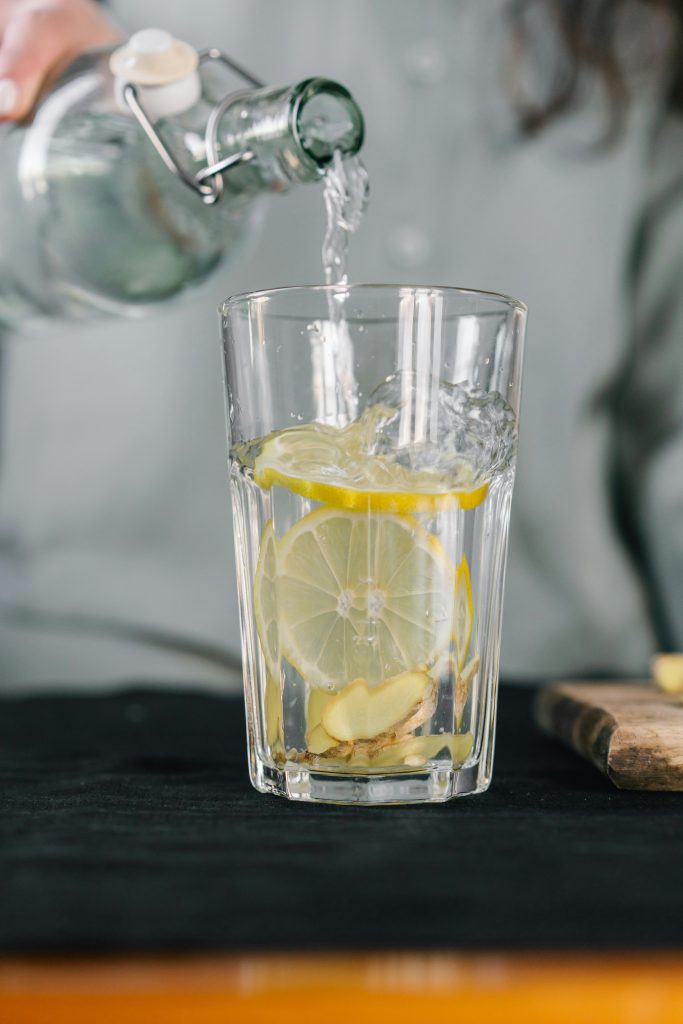
– During the fast, make sure you get adequate rest. If necessary, take naps during the day (if you need to). If you experience insomnia, you can take Melatonin before going to bed.
– For a juice containing many vitamins, remember that you can add 3 carrots, 3 kale leaves, 2 celery stalks, 2 beets, 1 turnip, ¼ spinach, ½ head of cabbage, ¼ parsley, ¼ onion and ½ clove of garlic. If you do not have a blender, put the vegetables in plain water and gently cook, without adding any seasoning and blend them. A glass of this juice can replace any juice during the fast. Remember that no solid food is allowed during the fast.
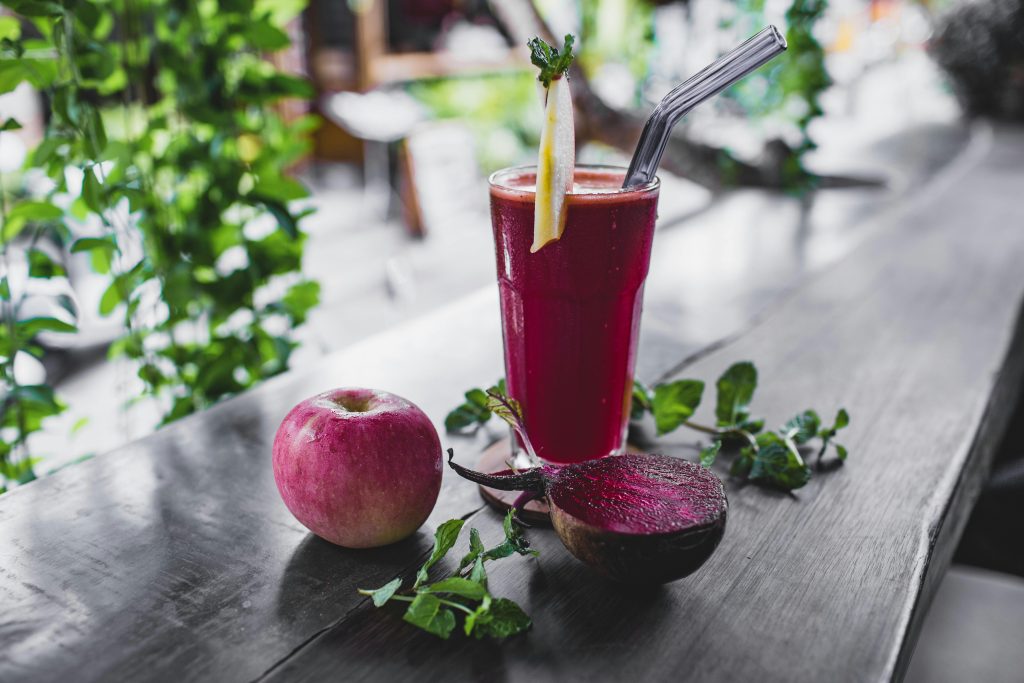
– During fasting, the toxins being released from your body can leave a strange taste in your mouth. To relieve this symptom, try gargling with lemon juice (not sweetened).
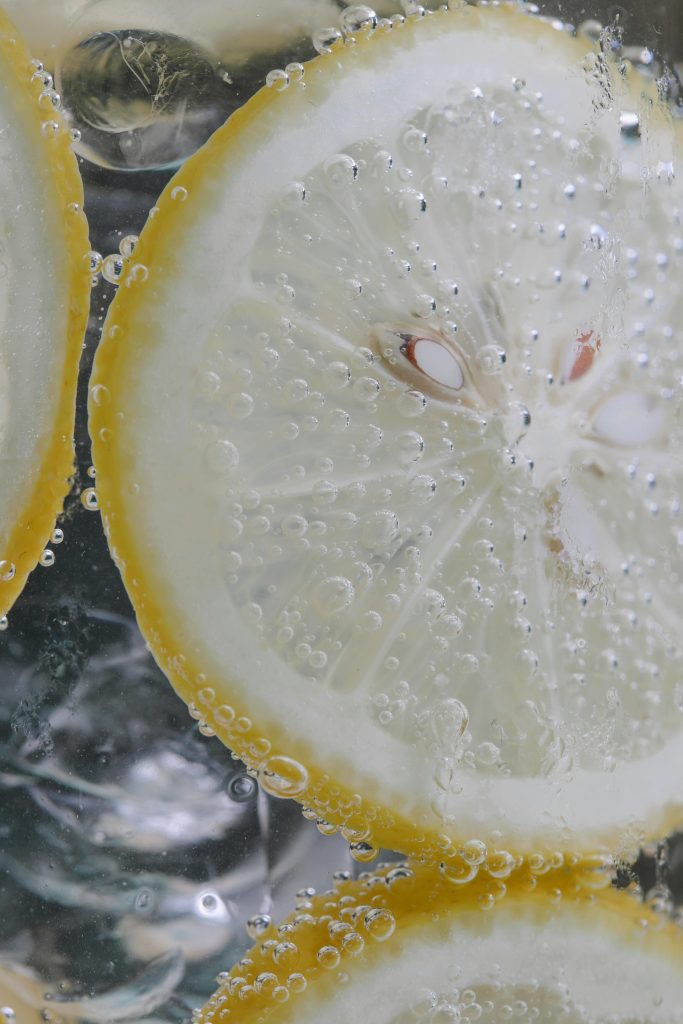
– There is no need to remove dentures if you use them.
– During the fast, continue with your routine, and you can do moderate exercise. Do not do strenuous physical exercise.
– Remember that when you start the detoxification and fasting process, your body improves and you start to feel much better and healthier. This is because the body is cleansed of impurities. Therefore, if you start polluting your body with toxins again, the toxins will start their process of storing impurities in your body, causing your metabolism to slow down. When you feel like this again, it will be a sign that it is time to start all over again.
– Before, during and after fasting, use vegetable loofahs in the bath and body massage to help the body release toxins and dead cells more quickly. Always massage with the loofah in the direction of the heart – from the wrist to the elbow, elbow to the shoulder, ankles to the knee, knees to the hips, and so on. This massage will help remove dead cells, increasing the opening of the pores, helping the skin to excrete impurities. It also helps to improve blood circulation. Do not use this technique on areas affected by acne, eczema or psoriasis. Also avoid areas with wounds or sores. Avoid massaging if you have peripheral vascular disease or varicose veins. It is contraindicated in these cases.

You can fast simply by avoiding those things that have been tempting you. Maybe sugar, sweets, chocolates, soft drinks, and others.
Fasting can be total or partial. Total fasting is when someone abstains from all types of food for a certain period. Partial fasting is when someone consumes fresh fruit, soups, broths or natural juices at normal meal times. Water consumption should be normal in any fasting option.
10 Steps:
- Get rid of food temptations in your home
- Start walking
- Get rid of anxiety
- Replace snacks with fruit juices and lots of water
- Remove pasta, cookies, white bread.
- Avoid leaks and compensations via oral satisfaction
- Increase your consumption of raw foods (fruits, salads)
- Replace Dinner with Fruit
- Forget about time. It is estimated that it takes 2 years for the body to get used to the new weight.
- Ask for divine help


